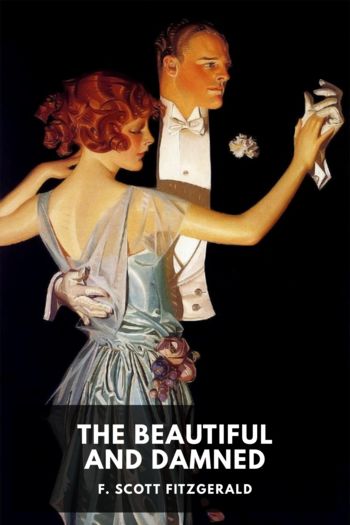Twelve Years a Slave by Solomon Northup (books to read to get smarter .txt) 📕

- Author: Solomon Northup
Book online «Twelve Years a Slave by Solomon Northup (books to read to get smarter .txt) 📕». Author Solomon Northup
“Oh, blessings on his kindly voice and on his silver hair,
And blessings on his whole life long, until he meet me there.”
He overwhelmed me with assurances of friendship and faithfulness, saying he had never before taken so deep an interest in the fate of anyone. He spoke of himself in a somewhat mournful tone, as a lonely man, a wanderer about the world—that he was growing old, and must soon reach the end of his earthly journey, and lie down to his final rest without kith or kin to mourn for him, or to remember him—that his life was of little value to himself, and henceforth should be devoted to the accomplishment of my liberty, and to an unceasing warfare against the accursed shame of slavery.
After this time we seldom spoke to, or recognized each other. He was, moreover, less free in his conversation with Epps on the subject of slavery. The remotest suspicion that there was any unusual intimacy—any secret understanding between us—never once entered the mind of Epps, or any other person, white or black, on the plantation.
I am often asked, with an air of incredulity, how I succeeded so many years in keeping from my daily and constant companions the knowledge of my true name and history. The terrible lesson Burch taught me, impressed indelibly upon my mind the danger and uselessness of asserting I was a freeman. There was no possibility of any slave being able to assist me, while, on the other hand, there was a possibility of his exposing me. When it is recollected the whole current of my thoughts, for twelve years, turned to the contemplation of escape, it will not be wondered at, that I was always cautious and on my guard. It would have been an act of folly to have proclaimed my right to freedom; it would only have subjected me to severer scrutiny—probably have consigned me to some more distant and inaccessible region than even Bayou Boeuf. Edwin Epps was a person utterly regardless of a black man’s rights or wrongs—utterly destitute of any natural sense of justice, as I well knew. It was important, therefore, not only as regarded my hope of deliverance, but also as regarded the few personal privileges I was permitted to enjoy, to keep from him the history of my life.
The Saturday night subsequent to our interview at the water’s edge, Bass went home to Marksville. The next day, being Sunday, he employed himself in his own room writing letters. One he directed to the Collector of Customs at New York, another to Judge Marvin, and another to Messrs. Parker and Perry jointly. The latter was the one which led to my recovery. He subscribed my true name, but in the postscript intimated I was not the writer. The letter itself shows that he considered himself engaged in a dangerous undertaking—no less than running “the risk of his life, if detected.” I did not see the letter before it was mailed, but have since obtained a copy, which is here inserted:
“Bayou Boeuf, August 15, 1852.
“Mr. William Perry or Mr. Cephas Parker:
“Gentlemen—It having been a long time since I have seen or heard from you, and not knowing that you are living, it is with uncertainty that I write to you, but the necessity of the case must be my excuse.
“Having been born free, just across the river from you, I am certain you must know me, and I am here now a slave. I wish you to obtain free papers for me, and forward them to me at Marksville, Louisiana, Parish of Avoyelles, and oblige
“Yours, Solomon Northup.
“The way I came to be a slave, I was taken sick in Washington City, and was insensible for some time. When I recovered my reason, I was robbed of my free-papers, and in irons on my way to this state, and have never been able to get anyone to write for me until now; and he that is writing for me runs the risk of his life if detected.”
The allusion to myself in the work recently issued, entitled “A Key to Uncle Tom’s Cabin,” contains the first part of this letter, omitting the postscript. Neither are the full names of the gentlemen to whom it is directed correctly stated, there being a slight discrepancy, probably a typographical error. To the postscript more than to the body of the communication am I indebted for my liberation, as will presently be seen.
When Bass returned from Marksville he informed me of what he had done. We continued our midnight consultations, never speaking to each other through the day, excepting as it was necessary about the work. As nearly as he was able to ascertain, it would require two weeks for the letter to reach Saratoga in due course of mail, and the same length of time for an answer to return. Within six weeks, at the farthest, we concluded, an answer would arrive, if it arrived at all. A great many suggestions were now made, and a great deal of conversation took place between us, as to the most safe and proper course to pursue on receipt of the free papers. They would stand between him and harm, in case we were overtaken and arrested leaving the country altogether. It would be no infringement of law, however much it might provoke individual hostility, to assist a freeman to regain his freedom.
At the end of four weeks he was again at





Comments (0)